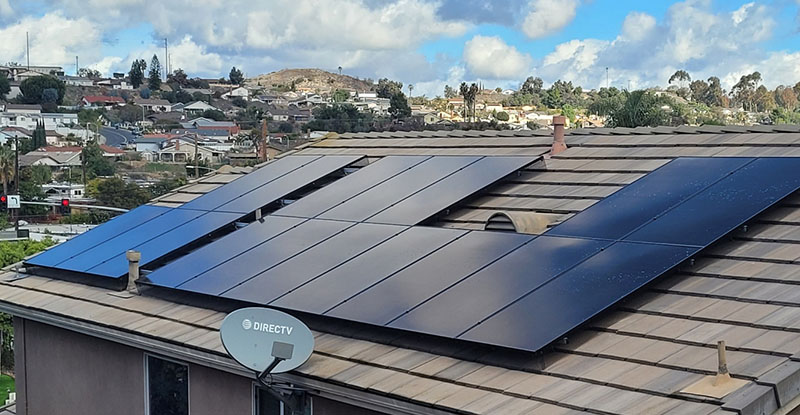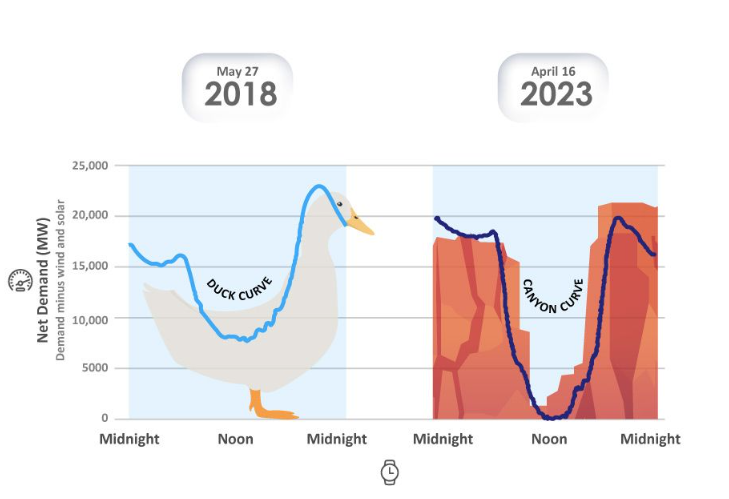
Advertising “free solar panels from the government” is one of the most common scams in the solar industry and has increased in prominence since the federal solar tax credit was increased and extended in August 2022.
However, amidst the numerous bad actors misleading the public, there are also a handful of niche government programs that do, in fact, provide solar systems for low-income households at no cost.
In this article, we’ll explore the scams and reputable programs surrounding the premise of free solar panels from the government.
Related reading: Solar Panel Cost: How do I calculate the cost of solar panels?
Is the US government giving away free solar panels?
The short answer here is no. The US government is not giving away free solar panels or paying people to go solar, no matter how many random YouTube and Facebook ads say otherwise.
This scam is usually a misrepresentation of the Residential Clean Energy Credit (aka solar tax credit). While this is a great incentive, it can hardly be considered “free solar panels.”
Here’s why:
- First, the solar tax credit is worth, at most, 30% of the installed cost of a solar and/or battery system
- Second, it’s a non-refundable credit that must be claimed on your federal income tax return – not a handout
- Third, this credit applies to several other technologies besides solar panels
So, while solar scammers would have you believe that there’s a federal government office dedicated to writing checks for solar panels, the reality isn’t anything close to that.
The goal of this scam is typically to collect (and sell) personal information or trick homeowners into long-term solar lease agreements or purchase contracts. This is why it’s very important to get multiple quotes for a solar project and to carefully vet solar companies before signing a contract with them.
With all that said, there are a handful of very niche state-run solar panels that provide eligible low-income households with solar systems at no cost.
The top results after searching “free solar panels” on YouTube. Top: An ad for a “free government solar program” likely designed to collect personal information or sell solar leases. Bottom: A local news report on GRID Alternatives, a non-profit that provides no-cost solar installations for qualifying low-income households.
Related reading: Can You Get Tesla Solar Panels for Free?
Can you get free solar panels from local government programs?
Perhaps the most frustrating part about free solar scams is that they overshadow genuine state-run programs offering no-cost solar panels for low-income families to help reduce their energy costs.
These programs are incredibly important because low-income households bear a disproportionate energy cost burden. According to the US Department of Energy, low-income households spend an average of 8.6% of their income on energy costs, compared to just around 3% for non-low-income households.
Low-income households also face greater barriers to solar technologies that can reduce energy costs, including:
- Insufficient cash resources
- Lack of financing due to poor or non-existent credit
- Inadequate site features (roofs, panel boxes, transmission infrastructure, etc.)
- Limited service by reputable installers
There are a handful of programs run through state governments that are designed to lower these barriers and even cover the cost of solar altogether for qualifying low-income households. The programs include, but are not limited to:
- GRID Alternatives
- California’s Low Income Weatherization Program (LIWP)
- California’s Disadvantaged Communities – Single-family Solar Homes (DAC-SASH)
- Colorado’s Weatherization Assistance Program (WAP)
- Washington DC’s Solar for All
- Illinois’ Solar For All
Currently, these programs are few and far between. The Inflation Reduction set aside $7 billion for the Environmental Protection Agency’s (EPA) Solar for All competition. This program is designed to fund up to 60 new and existing state, municipal, and tribal low-income solar programs. However, funding for these programs may be in jeopardy during the Trump Administration.
Related reading: Does Home Depot Have Free Solar Panels?
How to avoid free solar panel scams
Of course, for each new low-income solar program we can expect 10 more “free solar panels from the government” scams. Here are some tips for avoiding these scams.
- Be skeptical of any video on Facebook, YouTube, or anywhere else promising free solar panels – government programs rarely advertise on social media
- Make sure the program website has a “.gov” URL or is run by a government agency with a .gov URL. (Example: https://www.csd.ca.gov/Pages/Low-Income-Weatherization-Program.aspx)
- Double-check the addresses, phone numbers, and email addresses listed on the program page (again, look for “.gov” in the email addresses)
- Contact a state or local solar industry group to verify the program’s legitimacy
- Be skeptical of door-to-door salespeople pushing this program
As always, the best defense against scams is getting multiple quotes for your solar project and thoroughly vetting solar companies. Most low-income solar programs have a list of approved vendors to work with – make darn sure your installer is on that list!
The bottom line
False advertising for “free solar panels from the government” is perhaps the most common solar scam, especially on social media platforms.
This is especially shameful because it detracts from the genuine local government solar panels programs helping low-income and disadvantaged communities reduce their energy cost burden.
In order to avoid scams, take the time to thoroughly research and scrutinize anyone offering free solar panels and get multiple quotes for your project.





